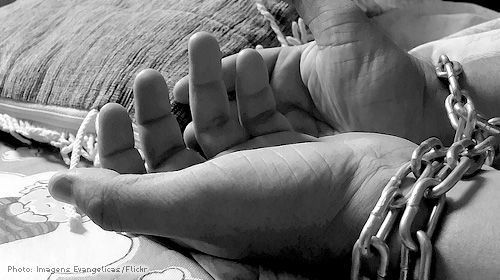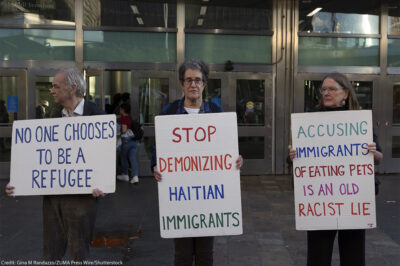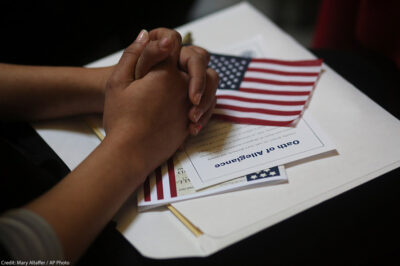The US Must Follow Through on Its Promises to Protect the Victims of Modern-Day Slavery


Modern-day slavery exists within our borders, and victims come from some of the most marginalized communities in the United States and abroad. What’s more, U.S. policies continue to make it easy for their employers to keep them vulnerable, underpaid, and silent.
The State Department’s annual "," released Monday, tracks and evaluates forced labor and exploitation in 188 countries. It acknowledges that the U.S. continues to be a major hub for human trafficking for forced labor. In part, this is perpetuated by serious flaws in migrant visa programs, allowing companies to lure migrant workers here with promises of lucrative employment and a path to citizenship. Instead, many are forced into horrific labor conditions, cheated out of adequate compensation, and threatened with deportation, or worse, their lives, if they complain.
Yet the State Department claims to be in full compliance with its anti-trafficking commitments, listing as evidence various social programs, immigration relief, and criminal prosecutions. The reality is starkly different.
For example, the report highlights a landmark case that the Southern Poverty Law Center, ACLU, and others litigated against a marine industry company, Signal International, that brought over 500 workers from India on the government’s H-2B guestworker visa program. Assured that they were actually paying for lawful permanent residence, these men pawned off their belongings to pay exorbitant recruiting fees and travel to worksites in Mississippi and Texas. There, they were shuttled into labor camps, where they faced unhygienic living conditions, constant noise from the worksites, and no privacy. One of the camp managers wrote in his journal that the workers were “dropping with sickness like flies.” When some of the men began to organize and examine their options for suing Signal, the company seized them and locked them in a trailer, telling them they were fired and would be deported.
After a four-week trial filed on behalf of five of the guestworkers before U.S. District Judge Susie Morgan, the jury found Signal liable for every claim brought against it. The workers were awarded $14 million in compensatory and punitive damages, making this one of the largest human trafficking cases in U.S. history.
David v. Signal exposes one of the many gaps in U.S. protections against labor trafficking – gaps that make it possible for companies to lie to foreign workers, abuse them here with little to no oversight, and keep them debt-ridden and stranded with no chance of escaping or seeking gainful employment elsewhere. The State Department’s report fails to acknowledge this blatant lack of regulatory supervision.
As part of its stated , our government must do more to protect migrant laborers – to ensure that hardworking immigrants who support U.S. industries and economic interests retain the right to dignity and fair compensation.
The fix is simple.
More effective mechanisms must be put into place to identify and assertively prosecute employers who charge extortionate recruiting fees, illegally confiscate workers’ passports, and put them through exploitative working conditions. Workers need the freedom to exercise their right to report abuses without fear of retaliation. And they need to be able to exit the contracts they were manipulated into signing and to pursue other employment and permanent residence in the United States.
Companies just like Signal continue to cheat their vulnerable employees out of what they deserve every day. One court case can’t bring down the entire system of migrant worker exploitation. If the U.S. is serious about its efforts to eliminate forced labor, it must address these issues at the root.
“The vast majority of trafficked persons,” said Maria Grazia Giammarinaro, U.N. special rapporteur on trafficking in persons, , “are not recognized as such, and as a result do not have access to justice and remedies.”
The State Department identifies migrant workers, children, people of color, LGBT individuals, people with disabilities, and homeless individuals as particularly vulnerable to forced labor and exploitation. It correctly identifies the lack of a victim-centered approach to justice — trafficking victims, including children, are often criminally prosecuted for their connection to illicit activity. This injustice persists in both sex trafficking and labor exploitation, and it must be addressed with robust new policy.
This year’s report indicates some self-reflection on the part of the government, which is a start. But today, on World Day Against Trafficking in Persons, we must demand that U.S. leadership do more to protect those who most need it most. Freedom from slavery is a human right.




